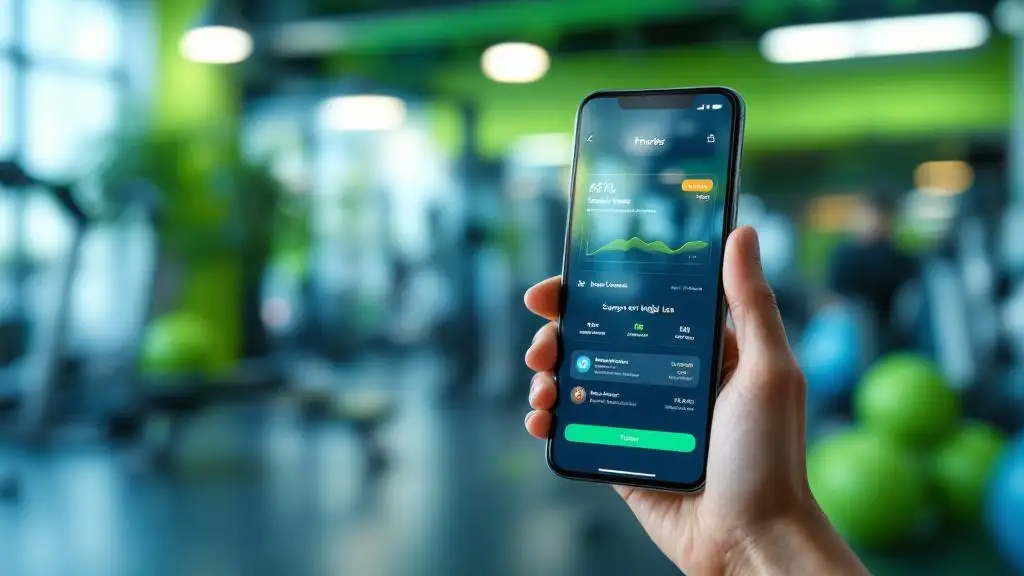Achieving Weight Loss Success with Virtual Nutrition and In-Home Accountability

Harnessing Technology and Behavioral Strategies for Sustainable Results
In recent years, virtual nutrition counseling and in-home accountability have emerged as powerful tools in the journey toward effective weight management. Leveraging online platforms, personalized care, and behavioral techniques, these approaches provide accessible, scalable, and scientifically grounded pathways to achieve health goals. This article explores how these innovative strategies work synergistically to promote lasting weight loss and healthier lifestyles.
The Science Behind Virtual Weight Loss Programs

How effective are virtual coaching and remote support in weight loss programs?
Virtual coaching and remote support have proven to be highly effective tools in the domain of weight management. Research indicates that individuals participating in online and telehealth programs typically experience significant weight loss, with many losing between 7 to 10 pounds over several months. This level of success is comparable, if not superior, to traditional in-person programs.
One of the reasons for this effectiveness is the personalized, continuous nature of virtual support. Programs often include regular video or phone consultations with qualified dietitians and health coaches. These virtual interactions help maintain motivation, provide tailored advice, and allow for ongoing adjustments to the plan.
Remote health monitoring also plays a vital role. Tools such as digital food logs, activity trackers, and smart scales enable participants to track their progress closely. Consistent self-monitoring is strongly associated with sustained weight loss.
Further, integrated models like Chronic Care Management (CCM) and Principal Care Management (PCM) help deliver ongoing support. By providing timely interventions and personalized care, these models improve health outcomes.
The combination of online education, real-time feedback, and accessible resources makes remote programs a scalable and cost-effective alternative to traditional in-person care. This approach not only promotes initial weight loss but also helps in maintaining healthier habits in the long term.
Overall, virtual weight loss programs and remote coaching are validated by scientific evidence as effective, sustainable, and adaptable methods to support individuals on their health journeys.
The Power of Personalized Nutrition and Support

How can virtual nutrition counseling assist in reaching weight loss goals?
Virtual nutrition counseling offers a powerful approach for individuals aiming to lose weight and improve their overall health. It provides personalized, evidence-based dietary guidance tailored to each person's unique needs, health conditions, and lifestyle. For example, programs from organizations like Culina Health, WeightWatchers, Nourish, and Virtua have shown to produce sustained weight loss, often exceeding typical industry results.
One of the main strengths of virtual counseling is the continuous support and regular progress monitoring it enables. Participants can access tools such as goal trackers, meal planners, and habit monitors, which help reinforce healthy behaviors and keep individuals motivated. These tools also facilitate consistent self-monitoring, an element strongly linked to long-term success.
Licensed dietitians (RDNs) are central to these services, providing expert advice and personalized plans. They assess individual health conditions—such as diabetes or heart issues—and create tailored nutrition strategies. This ensures that weight loss is achieved safely while addressing specific medical needs.
Moreover, virtual nutrition counseling is highly accessible and flexible, allowing individuals to attend sessions from home via video calls or phone. This convenience reduces barriers like travel time and scheduling conflicts, making it easier to stay committed.
Ongoing support from healthcare professionals helps individuals stay accountable and adapt their plans as needed. Regular check-ins, feedback, and educational resources nurture a sustainable approach that prioritizes long-term health. Overall, combining expert guidance, personalized plans, and accessible technology makes virtual nutrition counseling a highly effective tool for reaching weight loss goals.
Building Accountability for Long-Term Success

What impact do in-home accountability measures have on weight loss success?
In-home accountability measures play a crucial role in enhancing weight loss outcomes by creating a structured and supportive environment. Using tools such as self-monitoring, accountability partners, and virtual coaching helps individuals stay committed to their health goals.
Regular tracking, including daily food logs and weight measurements, encourages mindfulness and consistency. Studies show that logging weight or food logs at least six days a week can lead to 1.7 times greater weight loss compared to less frequent logging.
Setting clear, achievable goals with frameworks like SMART (Specific, Measurable, Achievable, Relevant, Time-bound) reduces decision fatigue and maintains motivation. For example, targets for calorie intake, protein consumption, and daily steps provide measurable benchmarks.
Engaging in physical activity at home, such as bodyweight exercises, walking during breaks, or following online workouts, enhances metabolism and supports fat loss efforts. Staying hydrated and choosing nutrient-dense foods further aids in weight management.
Support networks, including remote coaches, who provide regular feedback, accountability, and personalized guidance, significantly increase success rates. Participants who maintain weekly contact with their health coaches or email progress reports have retention rates as high as 95% over six months.
Accountability buddies or support groups also foster motivation and enjoyment in the weight loss journey. Having an accountability partner can triple the chances of success, as shared goals and encouragement make behavioral changes more sustainable.
In summary, combining various in-home accountability measures—self-monitoring, goal setting, social support, and professional oversight—creates a reliable environment that enhances motivation, guides behavior change, and ultimately leads to more effective and sustained weight loss.
Practical Strategies for Weight Loss at Home

What practical tips can help someone lose weight while working from home, focusing on diet, activity, and behavioral changes?
Losing weight while working from home requires a combination of structured routines and mindful habits. Establishing a consistent schedule for meals and snacks helps prevent impulsive eating and maintains energy levels throughout the day. Planning your day with designated times for physical activity, such as short workouts or walking breaks, can counteract prolonged sitting.
Practicing mindful eating—like avoiding distractions during meals and pre-portioning snacks—helps prevent overeating. Staying well-hydrated with water instead of sugary beverages reduces calorie intake and supports overall health.
Incorporate more movement into your daily routine by pacing while on phone calls, doing household chores vigorously, or setting daily step goals. These small changes can significantly increase your caloric expenditure.
Nutrition-wise, focus on a balanced diet rich in lean proteins, whole grains, fruits, vegetables, and healthy fats. Limiting processed foods, sugary snacks, and alcohol helps control calorie intake and improve metabolic health.
Additionally, creating a dedicated workspace away from the kitchen reduces temptation, and investing in basic home exercise equipment can facilitate regular workouts.
Seeking support from friends, family, or online accountability groups enhances motivation and adherence to your weight loss goals. Remember, consistency and planning are vital to making sustainable progress while managing work and home life.
Evidence-Based Practices and Technologies Driving Success

Are there evidence-based practices that incorporate virtual coaching and accountability for weight loss?
Yes, there are proven methods that utilize virtual coaching and accountability to support weight loss. These approaches are built on behavioral strategies like goal setting, self-monitoring, and motivational interviewing, all delivered through telehealth and digital platforms.
Studies show that structured programs combining professional virtual coaching with regular feedback significantly improve outcomes. For example, remote coaching sessions with registered dietitians or health coaches focus on personalized goals, ongoing support, and education, which helps participants stay motivated.
One effective element is the use of behavioral techniques such as tracking food intake, logging daily weight, and setting specific, measurable targets like calorie limits or step counts. These practices are backed by research to enhance adherence and long-term success.
Digital tools like apps and online portals enable automated, interactive coaching. Participants can receive tailored advice, reminders, and encouragement, making the experience engaging and adaptable to their routines.
Supplementing these digital interventions with regular professional contact increases engagement and reduces dropout rates. For example, weekly check-ins and email updates have been associated with higher retention (up to 95%) and more substantial weight loss, often three times greater than self-directed efforts.
Despite some variability in the quality of evidence, systematic reviews support the effectiveness of well-designed virtual coaching programs grounded in behavioral science. These programs are accessible, flexible, and can incorporate advanced features like AI support, making them a practical choice for healthy, sustainable weight management.
Technologies and tracking methods driving results
Technological tools are central to modern weight loss programs. Devices like portable smart scales provide detailed insights into body composition, including fat percentage and muscle mass. Food and activity trackers help users log meals and physical activity daily, promoting self-awareness.
Progress charts and habit trackers visually display improvements over time, motivating continued effort. Many programs also include webinars, group coaching, and online community support to foster accountability.
In addition, lab tests such as thyroid function and insulin levels identify health barriers, while medications like GLP-1 agonists can be integrated under medical supervision for greater effectiveness.
The combination of digital tracking and professional oversight creates a comprehensive, personalized approach. This synergy supports sustained behavior change and long-term health improvements. Overall, integrating science-backed behavioral strategies and advanced technology results in more effective and accessible weight management solutions.
Embracing the Future of Weight Management
As the landscape of health and wellness continues to evolve, integrating virtual nutrition services and in-home accountability measures offers an effective, accessible, and sustainable path to weight loss. The synergy of personalized support, behavioral strategies, and technological tools empowers individuals to make healthier choices and maintain their progress long-term. Staying motivated, leveraging expert guidance, and fostering accountability—whether through virtual coaching or at-home routines—are key factors that enhance success. Embracing these innovative approaches can help transform weight management from a challenge into a sustainable lifestyle, paving the way to a healthier future.
References
- Online vs In-Person Weight Loss Programs: Which Delivers Better ...
- Virtual Dietitian & Nutrition Counseling: How It Works - Season Health
- The Power of Accountability in Weight Loss - Lose It!
- Accountability and Weight Loss
- Cōpare Anywhere - Copare Health
- Is an Online Weight-Loss Coach Worth It for Accountability?
- Practical Ways to Lose Weight Working from Home
Recent articles
Want to Feel Better and Live Healthier?
Join hundreds of patients taking control of their health with personalized care that fits their life – not the other way around.
Rated 4.8/5 by 32+ customers







